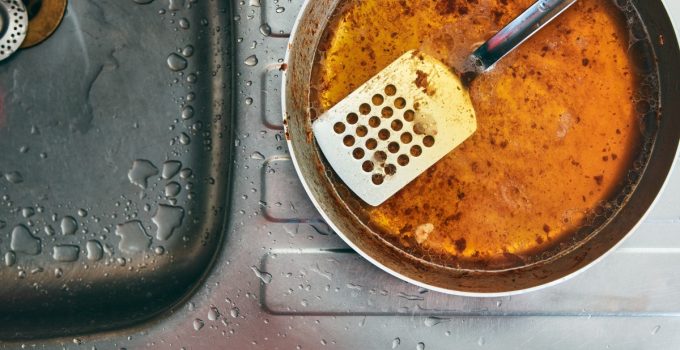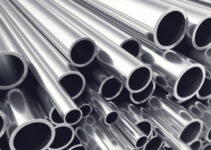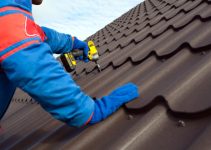Clogged drains are a common problem every household faces, sooner or later. If you don’t do anything to prevent it, it is bound to happen. After all, the kitchen sink is used constantly throughout the entire day. Depending on the type of buildup, it may not be a significant problem, and in most cases, you can fix it on your own.
Nevertheless, when the grease is the culprit for a clogged kitchen drain, you will probably need some help. In the following article, we will provide you with a list of tips on how to maintain your kitchen sink and prevent the buildup from occurring. In addition, we will also discuss some cleaning tricks you can try.
Don’t pour it down the drain
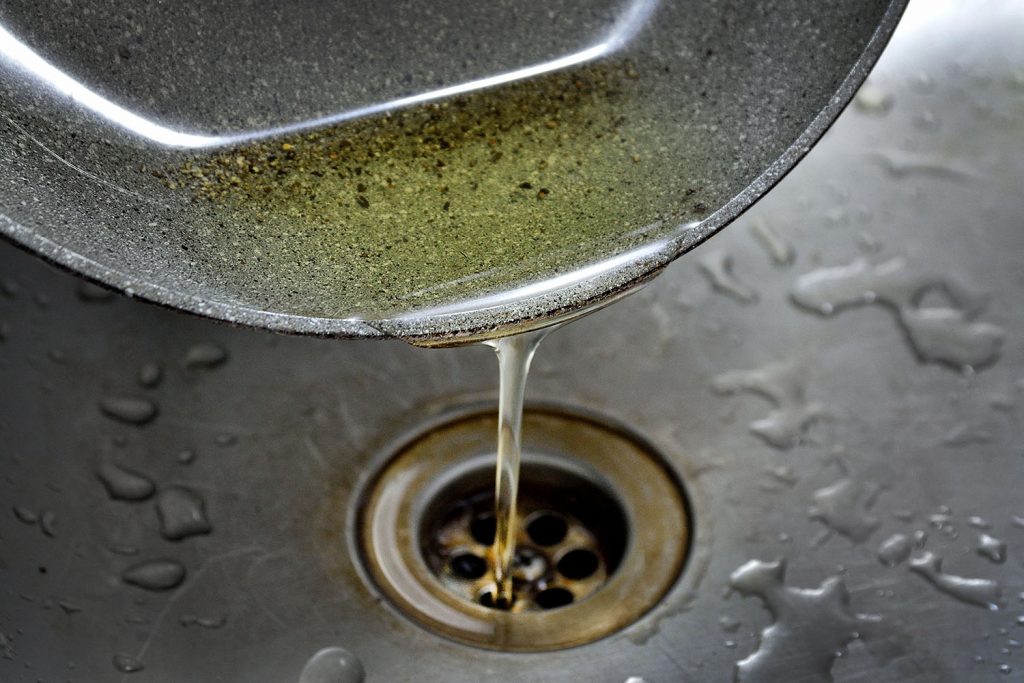
Source: reddit.com
This is quite obvious, isn’t it? If it isn’t there, it can really do any damage, right? It is as simple as that. Still, a lot of people don’t fully understand how a grease buildup occurs. After all, when you pour it down the sink, it is just another kind of liquid. So, how can it clog the pipes?
Well, once it cools down, it solidifies. You have probably already noticed this if you don’t wash the pans and pots immediately. It is why cleaning these after a few hours is a complete and total nightmare. As you can assume, the same thing occurs when you pour the grease down the drain. Obviously, the clog will not happen immediately, and not even in a few days. However, if you continue doing this, the grease will build up and completely obstruct the pipes. Then, no other liquid will be able to pass through, and you will have a big problem.
You will have to call professionals such as greasetrapdenver.com to because they use specialized tools and equipment. Let’s be completely honest. This is just another additional expense you will have to pay, and the worst part is that you could have avoided it altogether.
So, what should you do then? Well, you can collect it in an old coffee container or even a milk carton and take it out with the other trash at the end of the day or once you are done cooking.
Do you have a grease trap?
You are probably already familiar with this plumbing device, or you at least know that it exists. The thing is that people usually associate it with restaurants, so they are not aware of the fact that they can install it in their homes as well.
Yes, it is an investment you have to make, but it will prevent numerous problems you would face in the future. If you have one sink, you can install it beneath it, or on the other hand, if you use multiple ones, you can place it outside your home. If you do a lot of entertaining at home and you always have to wash a bunch of pots and pans, it might be good to have a farmhouse sink as well. This type of sink has a deeper basin, so you’d have a lot of space for convenience. Sites like Annie and Oak offer a wide variety of farmhouse sinks — perfect if you’re remodeling your existing kitchen. It would work excellently
with your grease trap.
Now, the big question is whether you should install it. If you cook a lot, then you definitely need this device. It will not only prevent clogged drains but will also prolong the lifespan of your pipes.
Clean the grease trap regularly
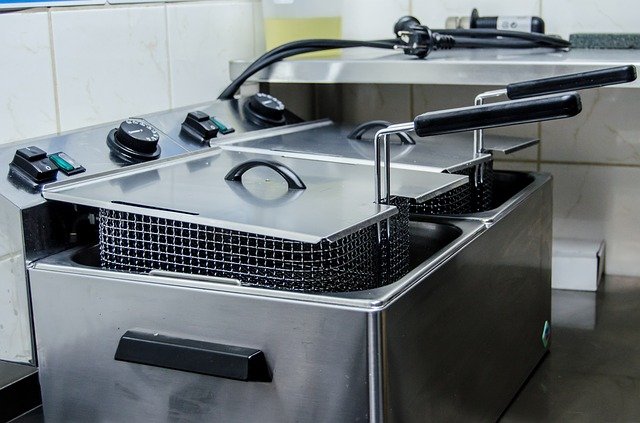
Source: supeckseptic.com
Naturally, it isn’t enough to simply install this device. You have to maintain it regularly. Otherwise, there is no point in getting it. If you don’t do this, the same thing will occur – the grease will accumulate, and over time, it will cause a blockage.
If you want it to function perfectly and protect your pipes and drains, you have to clean it as often as necessary. Obviously, this is something that completely depends on your cooking habits. Yes, this can be a messy job, but you still have to do it.
Run hot water after every use
If you are not in the habit of doing this, then you should acquire it as soon as possible. Hot water breaks down all the oil in food scraps that find their way to the drain. This way, the oil will not stick to the surface of the pipes and cause a blockage over time.
Moreover, you can take this routine to the next level and pour in a bit of baking soda before running the water. Obviously, it isn’t necessary to do this every time you use the sink, but you should do it every few days or at the end of a busy cooking session. Baking soda will not only clean the drain, but it will also absorb and eliminate the awful odor coming from the kitchen sink.
Use a drain gate
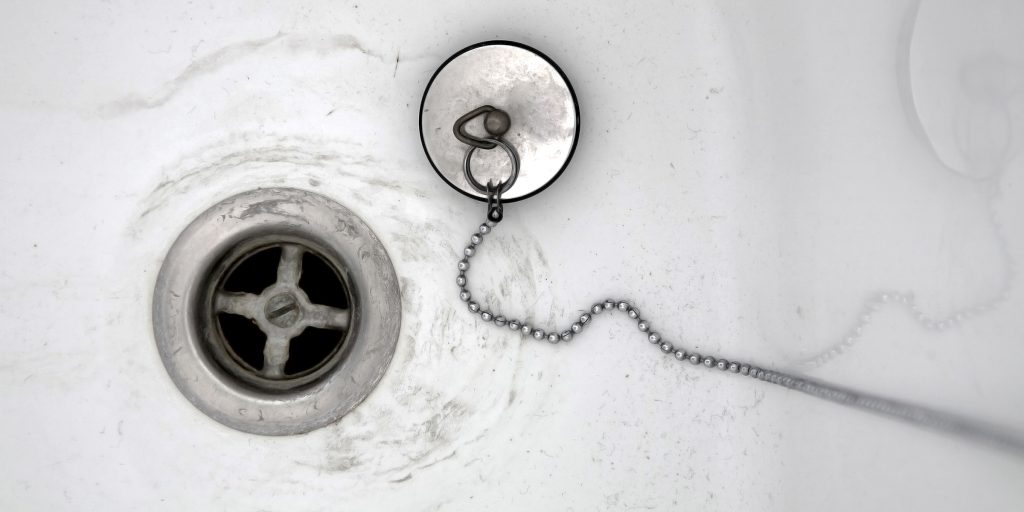
Source: today.com
We have already mentioned that you should never pour the grease down the drain if you want to preserve your pipes. The same thing goes for food scraps, not because these can clog the pipes on their own, but also because of all the oil the food contains. We have already explained how it can be another cause of the blockage, so you should make sure to collect every piece from the sink. Besides that, you should also use a drain gate to make sure that the food won’t reach the pipes.
Make a natural cleaning solution
Depending on the degree of damage the clog has caused, you may be able to deal with the problem on your own. You probably already know this, but you can make your own cleaning solution using baking soda, vinegar, salt, and boiling water. Firstly, pour salt and baking soda into the drain, and then add vinegar, and let it sit for a few minutes. Finally, follow everything down with boiling water. Leave this solution to do its magic overnight, and your sink will be pristine in the morning. However, before you do this, think about the pipes you have. Why? Well, if they are PVC, make sure that the water is not too hot, meaning that you should just warm it instead of boil it.
Conclusion
To sum up, these are only some of the multiple tricks you can use to prevent grease buildup in your kitchen. Naturally, there are other things you can try, but our advice is to start with these. If, for any reason, these don’t work, you can step up your game or hire professionals to locate the problem.

